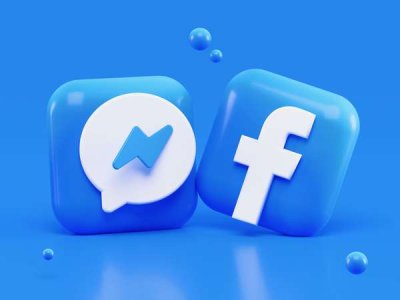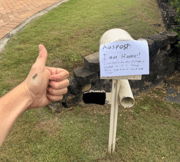Meta pulls the plug on its widely used messaging app
- Replies 18
Have you ever noticed how, as a phone gets older, it tends to feel slower?
It's not just age that contributes to the device slowing down; limited data, poor connections, and small storage space can all contribute to a slow and frustrating smartphone experience.
This is where Messenger Lite, an app created by Meta, came in to help.
First introduced in 2016, this nifty little application was tailored for those with older Android devices—which at the time meant devices from 2009 or 2011—with a small download size of just 1MB. Not only did it use less memory and data, but it also ran smoothly on minimalist processors and low bandwidth connections.
The app did an excellent job of making the online messaging experience smooth and pain-free for people in the countries where Meta initially rolled out the program.
However, with the recent updates to the regular Meta Messenger application, Messenger Lite became unnecessary and obsolete.
Meta recently announced that it will entirely discontinue the app for everyone except current users, who will have access until September 18, after which it will no longer be available.
For everyone else, the app was already removed from the Google Play Store earlier this month.
The company said: 'Starting August 21, people using the Messenger Lite app for Android will be directed to Messenger or FB Lite to send and receive messages on Messenger.'
If you're using Messenger Lite, Meta gives you two options.
Option 1: You can use the main Messenger app, but this depends on how powerful your phone is and how much storage it has. If you're using Messenger Lite because your phone can't handle the regular Messenger, the normal version might not work well.
Meta has clarified that users can retain the discontinued Messenger Lite app on their devices to access their contacts, messages, and chat history. However, once it's deleted, they won't be able to download the app again.
Option 2: You can use Facebook Lite. This is a lighter version of the usual Facebook app that won't slow down your phone. Please note that Messenger Lite and Facebook Lite, though both related to the social network Facebook, are separate apps.
Messenger Lite’s main function was for Facebook’s messaging service, while Facebook Lite is a version of the main Facebook app with less functionality. The good thing is Facebook Lite also has a built-in chat, so you don't need to get the separate Messenger app.
Choosing the better app depends on what you want and like. You may have started using Messenger Lite because of your older phone, and you got used to it. If that's the case, trying the regular Messenger could be useful. It might fit your needs or you might enjoy using it.
But if you have little space on your phone or there are other limits, Facebook Lite might be the better choice. If you already use Facebook Lite, you're lucky because you won't need to get another app when Messenger Lite is eventually discontinued.
The news about the discontinuation of the Lite app comes after the recent announcement that Android users will also need to prepare for another major change from Meta.
Starting September 28th, Android users will have their Messenger app's SMS capabilities removed automatically when they update the app.
'If you use Messenger as your default SMS messaging app for your Android device, please note you will no longer be able to use Messenger to send and receive SMS messages sent by your cellular network,' said a Meta representative.

There you have it, members! Make sure to stay vigilant for these upcoming changes if you're an Android user to steer clear of any surprises. In today's rapidly advancing technological landscape, being prepared is always a wise choice.
We trust that you've found this article both helpful and informative! Feel free to share your thoughts in the comments section below.
It's not just age that contributes to the device slowing down; limited data, poor connections, and small storage space can all contribute to a slow and frustrating smartphone experience.
This is where Messenger Lite, an app created by Meta, came in to help.
First introduced in 2016, this nifty little application was tailored for those with older Android devices—which at the time meant devices from 2009 or 2011—with a small download size of just 1MB. Not only did it use less memory and data, but it also ran smoothly on minimalist processors and low bandwidth connections.
The app did an excellent job of making the online messaging experience smooth and pain-free for people in the countries where Meta initially rolled out the program.
However, with the recent updates to the regular Meta Messenger application, Messenger Lite became unnecessary and obsolete.
Meta recently announced that it will entirely discontinue the app for everyone except current users, who will have access until September 18, after which it will no longer be available.
For everyone else, the app was already removed from the Google Play Store earlier this month.
The company said: 'Starting August 21, people using the Messenger Lite app for Android will be directed to Messenger or FB Lite to send and receive messages on Messenger.'
If you're using Messenger Lite, Meta gives you two options.
Option 1: You can use the main Messenger app, but this depends on how powerful your phone is and how much storage it has. If you're using Messenger Lite because your phone can't handle the regular Messenger, the normal version might not work well.
Meta has clarified that users can retain the discontinued Messenger Lite app on their devices to access their contacts, messages, and chat history. However, once it's deleted, they won't be able to download the app again.
Option 2: You can use Facebook Lite. This is a lighter version of the usual Facebook app that won't slow down your phone. Please note that Messenger Lite and Facebook Lite, though both related to the social network Facebook, are separate apps.
Messenger Lite’s main function was for Facebook’s messaging service, while Facebook Lite is a version of the main Facebook app with less functionality. The good thing is Facebook Lite also has a built-in chat, so you don't need to get the separate Messenger app.
Choosing the better app depends on what you want and like. You may have started using Messenger Lite because of your older phone, and you got used to it. If that's the case, trying the regular Messenger could be useful. It might fit your needs or you might enjoy using it.
But if you have little space on your phone or there are other limits, Facebook Lite might be the better choice. If you already use Facebook Lite, you're lucky because you won't need to get another app when Messenger Lite is eventually discontinued.
The news about the discontinuation of the Lite app comes after the recent announcement that Android users will also need to prepare for another major change from Meta.
Starting September 28th, Android users will have their Messenger app's SMS capabilities removed automatically when they update the app.
'If you use Messenger as your default SMS messaging app for your Android device, please note you will no longer be able to use Messenger to send and receive SMS messages sent by your cellular network,' said a Meta representative.
Key Takeaways
- Meta is discontinuing its Messenger Lite app for Android users from September 18, having made it unavailable on the Google Play Store earlier in the month.
- The app, designed for older Android devices and lower-performing CPUs, was introduced in 2016 to use less memory and data.
- The company said that improvements to the regular Messenger app have meant the Lite version is no longer necessary.
- This comes before another significant change, as Messenger will no longer support SMS capabilities from September 28.
There you have it, members! Make sure to stay vigilant for these upcoming changes if you're an Android user to steer clear of any surprises. In today's rapidly advancing technological landscape, being prepared is always a wise choice.
We trust that you've found this article both helpful and informative! Feel free to share your thoughts in the comments section below.








